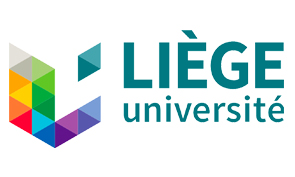
ULiège: Metallic Materials for Additive Manufacturing
University of Liège, Faculty of Applied Science, Department of Aerospace and Mechanical Engineering
General expertise of the research group
The MMS research group aims at a better understanding of the relationships between the processing parameters, microstructures, mechanical (fatigue behaviour, wear resistance…) and thermophysical properties of metallic materials. In particular, the MMS laboratory is well equipped for the study of microstructural changes in metallic materials and for measuring thermophysical data up to high temperatures (DSC and DTA up to 1500°C, and Laser flash diffusivimeter up to 2000°C). In complement to these equipments, a new quenching dilatometer equipped with a compression module has recently been acquired (funding of 260.000 euros awarded by the Walloon Region and the European Funds for Regional Development under convention FEDER IAWATHA). This new equipment will be key to the identification of the laws determining the behaviour of materials under complex thermomechanical histories involving high heating/cooling rates that are typical of additive manufacturing processes.
Another major field of activity is the study of the tribological behaviour of materials from the nano- to the macro-scale thanks to the combination of a high temperature “pin-on-disc” tribometer and a high temperature nano-indenter. Furthermore, equipments for corrosion testings will be acquired in the near future (thanks to an “Equipment” subvention of 30.647 euros awarded by the Faculty of Applied Sciences (ULiège in June 2023).
The MMS laboratory is also well equipped for the microstructural characterisation of materials, including equipments for sample preparation- microcutter, automated grinder and polisher…– and several optical microscopes. The optical microscope Olympus BX60M, with its motorised platform, is particularly well suited for carrying out image analysis on large areas e.g. to assess the metallurgical health of AM components.
Over the last few years, the group has been studying very actively the additive manufacturing of metallic materials (e.g. Ti- and Al-based alloys, stainless or high speed steels and metal matrix composites). Additive processes are characterized by ultra-fast heating and cooling rates that result in strongly out-of-equilibrium microstructures (epitaxial solidification, high residual stresses, obtention of supersaturated solid solutions…). In particular, epitaxial solidification and its consequences in terms of anisotropic microstructures and usage properties, have been investigated in Ti-based alloys processed by both powder-bed (selective laser melting) and by direct powder-feed (laser cladding) processes. Previous or ongoing works of the MMS unit in the field of laser cladding include the processing of thick tool steel deposits and stainless steel matrix composites. Special attention has also been given to the effect of microstructural heterogeneities and of post-processing thermal treatments on the mechanical properties e.g. of LBPF AlSi10Mg parts.
Until now, activities in the field of additive manufacturing have been carried out in collaboration with various partners (Sirris, AnyShape…) which provided the necessary samples and/or access to AM equipments. In order to further develop this line of work, the MMS Unit has recently acquired its own laboratory-scale LPBF equipment, i.e. an Aconity Mini LPBF printer that is operational since September 2022 and that is specifically dedicated to the investigation of new materials (fundings for this equipment were allocated by the Aerospace and Mechanical Engineering Department of the University of Liège, and on the MMS Laboratory own funds). Besides, a Pulverisette 6 planetary mill, together with a sieving system (Haver EML 200 Pure), are already available in the MMS laboratory, that are suitable for powders mixing and preparation.
Specific hydrogen- related expertise & research topics
- Expertise concerning interactions between metallic materials and hydrogen, including hydrogen embrittlement phenomena, also in cryogenic conditions
- Failure diagnosis
Participating in FL/B/EU funded projects with H2 related research
- Skywin-Hypster project. “HYPSTER- HYdrogen Propulsion System: Thermique Et Régulation”. Leader: Safran Aero Boosters (SAB). Other involved companies: BeBlue, GDTech, DardenneV2i, Sirris and VKI
Main relevant publications
- Numerous expertise reports (confidential)
- Also see publications by Prof. Anne Mertens
Contact persons
Prof. Anne Mertens
anne.mertens@uliege.be
Dr Jérôme T. Tchuindjang
j.tchuindjang@uliege.be
ULiège | Department of Aerospace and Mechanical Engineering
Quartier Polytech 1
Allée de la Découverte 13A
B-4000 Liège (Sart Tilman)
